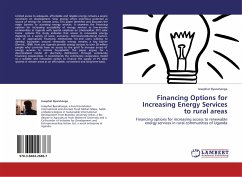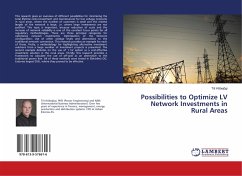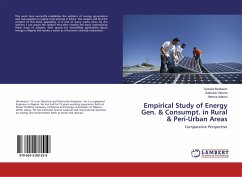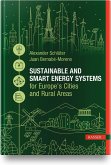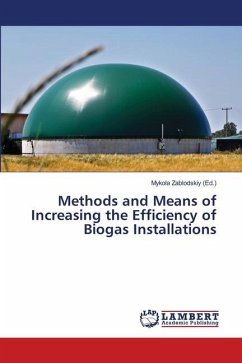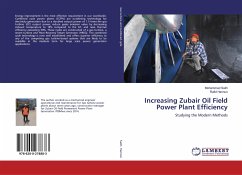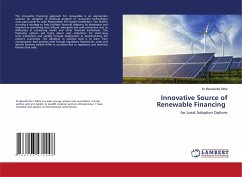Limited access to adequate, affordable and reliable energy remains a severe constraint on development. Solar energy offers enormous potential as source of energy for remote areas. This paper identifies and discusses the major barriers to accessing energy services. It examines the financing options for increasing accessibility of energy services to low-income communities in Uganda with special emphasis on photovoltaic (PV) solar home systems. The study indicates that access to renewable energy depends on a variety of socio- economic- technical-institutional factors. Lack of appropriate financing mechanisms for end users wishing to develop businesses around renewable energy remains a key barrier (Derrick, 1998). How can Uganda provide energy services to over 20 million people who currently have no access to the grid? To increase access of energy services to remote households, this paper argues for a decentralized model of electricity distribution through community financing cooperatives. It recommends the community cooperative model as a suitable and innovative option to finance the supply of PV solar systems in remote areas at an affordable, convenient and long-term basis.
Bitte wählen Sie Ihr Anliegen aus.
Rechnungen
Retourenschein anfordern
Bestellstatus
Storno

